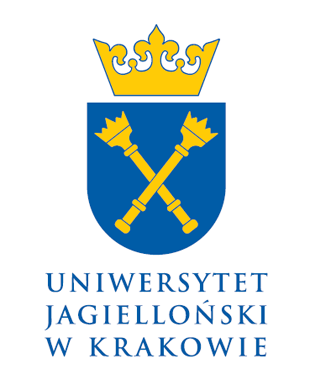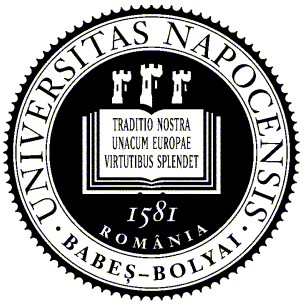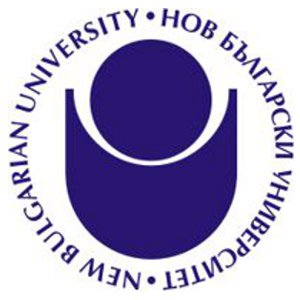- Partager cette page :
- Version PDF
European Citizenship and Integration 7 and 10 years after
Jagiellonian University, Krakow
Institute of European Studies
In partnership with
Matej Bel University, Banska Bystrica, Faculty of Political Sciences and International Relations
Ad personam Jean Monnet Chair « Identities and Cultures in Europe »
L’Université Babes-Bolyai de Cluj-Napoca, Faculté d’études européennes, Département de relations internationales et d’études américaines
La Nouvelle Université Bulgare
L’Université de Versailles Saint-Quentin-en-Yvelines, Institut Supérieur de Management, LAREQUOI
Institute of European Studies
In partnership with
Matej Bel University, Banska Bystrica, Faculty of Political Sciences and International Relations
Ad personam Jean Monnet Chair « Identities and Cultures in Europe »
L’Université Babes-Bolyai de Cluj-Napoca, Faculté d’études européennes, Département de relations internationales et d’études américaines
La Nouvelle Université Bulgare
L’Université de Versailles Saint-Quentin-en-Yvelines, Institut Supérieur de Management, LAREQUOI
INTERNATIONAL CONFERENCE
" EUROPEAN CITIZENSHIP AND INTEGRATION
7 AND 10 YEARS AFTER "
2014, October, 6th
Krakow
Ce colloque réunit plus de 170 chercheurs en économie et management représentant plus de 40 institutions universitaires dont la moitié localisée dans plusieurs pays de l’Europe de l’Est (la Bulgarie, la Russie, l’Ukraine, République Tchèque, la Slovaquie, la Macédoine, la Lituanie, l’Estonie, la Lettonie, la Belarusse). Depuis 2002, ces échanges scientifiques sont organisés annuellement et visent le développement de connaissances et pratiques de management appropriées aux contextes locaux." EUROPEAN CITIZENSHIP AND INTEGRATION
7 AND 10 YEARS AFTER "
2014, October, 6th
Krakow
Depuis 2013, ce colloque s’est enrichi du partenariat avec des enseignants-chercheurs français dans le cadre de la chaire Unesco « Innovation, Entrepreneurship et Changement » portée par le professeur Philippe Hermel, ISM, Université de Versailles St-Quentin.
Le contexte
For the countries that joined the EU with the recent waves of integration, the situation is still very different 7 or 10 years later. The first obvious dichotomy between North and South is juxtaposed with a lot of differences between East and West (which the Structural Funds were meant to reduce). Europeans’ initial expectations were high and nowadays disenchantment is being expressed. In addition, these developments have highlighted the reality and the intensity of internal disparities within each Member State, which concern all citizens and constitute a basis for the implementation of wider solidarity and of some trends in identity and/or nationalist politics, especially with the consequences of the crisis since 2008. A deep ideological crisis seems to be shaking some countries, especially when the national institutions are less recognized or considered legitimate, as in Bulgaria.
Thus, especially for the former satellite countries of the Soviet Union, the European integration is more or less integrated in a long process, as a “return back to Europe” for many, or after the creation of a new State for some. These integrations took effect after negotiations and normalisations, and often after some profound transformations of rules or of the structure of institutions. An institutional “Europeanization”, somehow, that was part of a change that many analysts have called an economic and democratic “transition”.
It is therefore possible to ask whether this integration of the “acquis communautaire” is legitimate for the citizens of these countries. Is this integration deep or not ? What are the effects of these institutional harmonisations or uniformisations, including the Bologna Process for higher education, of the application to the guidelines, or the implementation of Community programs and in particular the use of the Structural Funds for the objective of convergence ?
It is often noted that the new EU citizens have a rather positive image of the European Union, especially among the younger generations who regret at the same time the alleged bureaucratic excesses. But if a mistrust of national institutions increases at the same time, then the European choice is more by default than by conviction. In the countries in the North, the Schengen and the Euro zones are concrete evidence, installed in daily life, of this “Europeanness”, although it is often considered to be relatively rare. The symbolic EU remains weak and generally is relevant mostly to the nations...
The European Union has set up an additional citizenship, if not supplementary, with real rights but without duties integrated in the mentalities. The legitimation of institutions is not obvious and many people live their European membership as a set of constraints rather than as a voluntary process In the example of Bulgarian citizens, the question of the deadline for the country’s accession to the Schengen area helps to maintain a situation experienced by them as a juxtaposition between centre and periphery.
It is interesting to note that, under this “Europeanization” of the new Member States, one always evokes the “acquis communautaire” (the French term is used even in English, as well as in the local languages). And while its implementation was a process that took fifty years for the old states, it has to be carried out in ten or fifteen years for the new members !
7 and 10 years later, we are forced to acquiesce to the evidence of those differences, even the gulf between the “new” European states and the “old” ones. For the former, the European Union sometimes seems to be a sort of a “club” more or less reserved for old Western democracies. But while there was no doubt about the question of membership, the disappointment is clearly visible for the new European citizens.
It is not contradictory to link the important trust in the European institutions often exhibited by new EU citizens to the mistrust displayed towards their own country’s national institutions... and also this does not encourage them to vote massively at the European elections. In response to the crisis which Bulgaria has been going through since the winter of 2012-2013, some Bulgarian journalists advocate for their country to be under direct temporary guardianship of the European Commission. However, this idea is not necessarily proof of legitimacy but a pragmatic... and provocative reaction.
Obviously, the issue of integration and European citizenship goes beyond the political, diplomatic, institutional or even journalistic considerations ; the whole society, every citizen, each resident is concerned. It is also necessary to analyse the integration and the citizenship together with the changes of attitudes and of uses, taking into account the migrations and mobility, and the development of communities in social networks, the permanent connections to the Internet, the evolution of traditional media or the uses of television programmes... Migrants and European free movers are part of a “supermodern” context and perhaps the European citizenship that complements the national citizenship could also be a “super/post-citizenship” in a super/post-democracy?
The evolution of the diversity of nationalities in European countries should be articulated with that of citizenship and integration on the one hand, and the question of identities (local, regional, national, European[s], etc.), on the other. The identity processes and the social commitments also reveal the ability of citizens to build them as such.
European integration is a complex and long-lasting process. Failing to see the emergence of a European public space, some convergences exist that allow considering the connection of public spaces inside the Union and the implementation of an active citizenship. For this, it is necessary that the national citizens make the choice to discover these spaces within each country, and not that of ignorance and rejection.
The proposed conference will be an opportunity to have some exchanges about different topics:
The political and administrative development of the European Union is quite specific. A multilevel organization exists de facto with bilateralities (still) and old and new multilateralities therein. The development and the prospects of the European Union, in terms of cooperation, must take into account the realities of these multilateralities. The example of the Visegrád agreement is very interesting in this respect.
One can also wonder what is now the role of the diplomatic mission of each Member State within the European Union. Does it help or thwart the European project, does it promote or not the collective projects?
In particular, educational, cultural and economic diplomacies within the European Union are bilateralities that are not necessarily in the service of European integration or of the neighbourhood policy of the European Union. That is why some cross-cutting approaches of external policies for Europe in different Member States are suggested.
The evolution of the EU seems to lead to convergences, harmonisations and/or uniformisations in various legislative and regulatory areas (nationality, economy, education, employment, etc.), but differences persist (working conditions, standard of living, housing conditions, healthcare systems, social policies, etc.) and upset the European integration, particularly social integration.
Finally, it is interesting to study the process and the reality of European integration together with the evolution of the European Neighbourhood Policy (considering the multilateralities), and to take into account common values and the search for global security.
-> Remonter
Proposals for papers
Proposals for papers, (with title, summary of the proposal, personal introduction of the author) should be sent before August, 31th, 2014 to Natasza Styczyńska (natasza.styczynska@uj.edu.pl), Grzegorz Pożarlik (pozarlik@ces.uj.edu.pl) and Gilles Rouet (gilles.rouet@uvsq.fr).
The language of the oral presentation will be English but the written contribution could be in French or in English. The texts should be sent before November 15th, 2014, for publication.
-> Remonter
Scientific and Organizing committee
Annie Bartoli, Université de Versailles-Saint-Quentin-en-Yvelines
Anne-Coralie Bonnaire, Université Paris Descartes et de Leipzig
Serge Dufoulon, Université Pierre Mendès France, Grenoble
Antoniy Galabov, Nouvelle Université Bulgare, Sofia
Radovan Gura, Université Matej Bel, Banska Bystrica
Philippe Hermel, Université de Versailles-Saint-Quentin-en-Yvelines
Ioana Hritcu, Université de Cluj-Napoca
Anna Krasteva, Nouvelle Université Bulgare, Sofia
Péter Kruzslicz, Institut des études internationales et régionales, Université de Szeged
Christophe Lips, Université de Versailles-Saint-Quentin-en-Yvelines
Sergiu Miscoiu, Université de Cluj-Napoca
Miroslaw Natanek, Institute of European Studies, Krakow
Dariusz Niedźwiedzki, Institute of European Studies, Krakow
Grzegorz Pożarlik, Institute of European Studies, Krakow
Gilles Rouet, Université de Versailles-Saint-Quentin-en-Yvelines, Université de Banska Bystrica
Maria Rostekova, Université Matej Bel, Banska Bystrica
Natasza Styczyńska, Institute of European Studies, Krakow
Peter Terem, Université Matej Bel, Banska Bystrica
Antony Todorov, Nouvelle Université Bulgare, Sofia
-> Remonter















